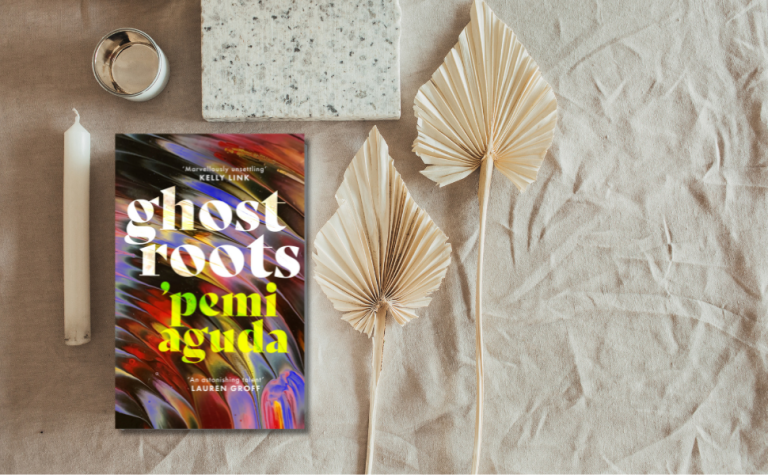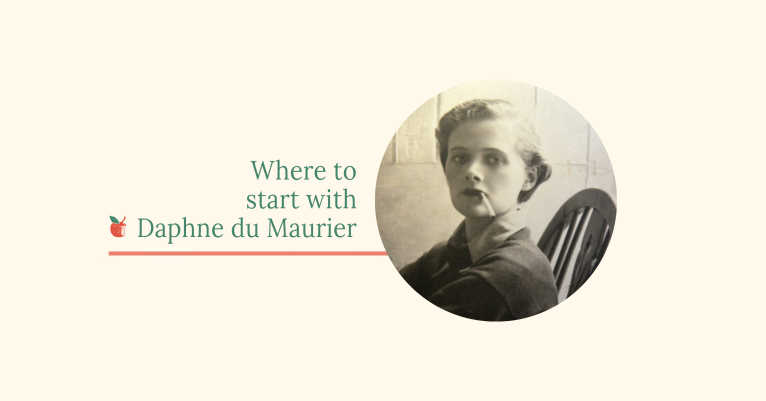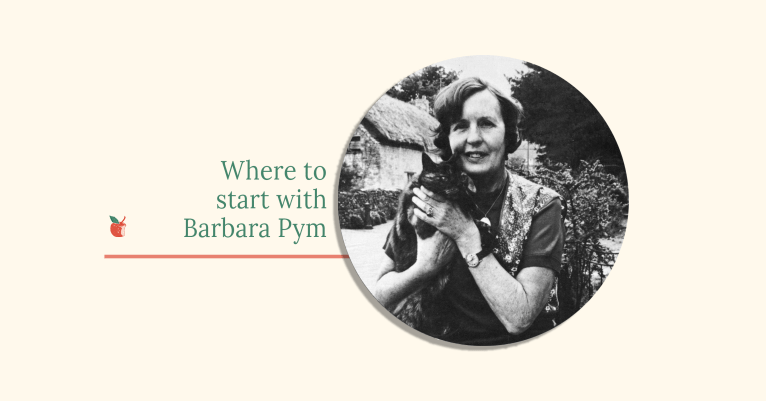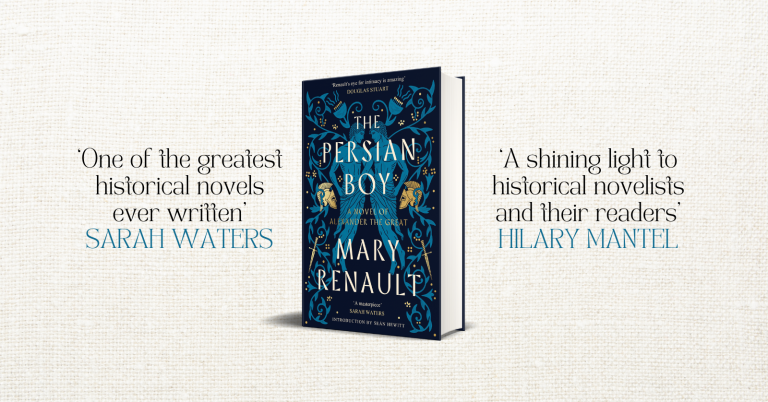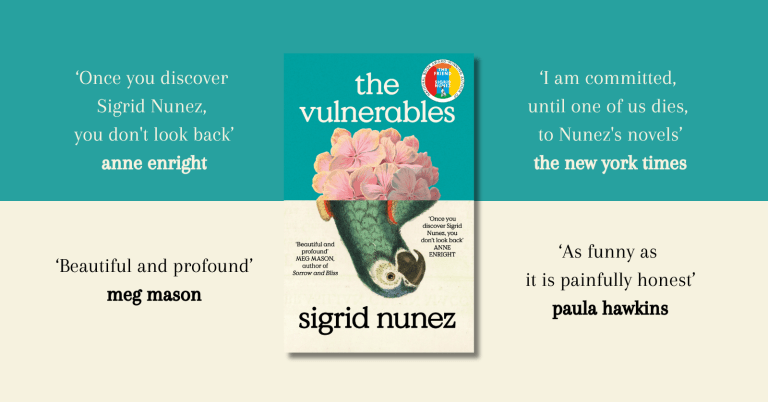And the winner is . . . The Running Ones, by Sophie Mackintosh.
Inspired by our re-issue of four Daphne du Maurier collections this month, earlier this year we teamed up with Stylist Magazine and asked your for your chilling short stories. The entries poured in – covering everything from magical realism to mental illness – and having whittled down almost 500 entries to a shortlist of 10, our judges have finally selected a winner. Read on for the winning story, The Running Ones, by Sophie Mackintosh.
“This story absolutely stood out to me: it was mysterious, tense, haunting, yet also moving. It really did have me on the edge of my chair,” says editorial director of Virago Modern Classics, Donna Coonan.
Author Stella Duffy, whose new book, London Lies Beneath is out in October, also loved the story “for its clear sense of the ‘other’, and a foreboding and uncertainty that ran throughout, without ever spelling anything out for the reader.”
The Running Ones
They had made it two months since the last sighting, and were almost starting to draw breath again at night. They lit candles with the curtains open, raised a hand to their neighbours at the edge of the village, but one morning, Husband went out to fetch wood and noticed the tracks in the snow and thought – oh.
He fetched it anyway and made himself walk carefully back to their bungalow, the low shrug of it set apart in the trees. In the bedroom she was sleeping. Her sleep had been very good lately, deep and long, and he remembered too late that this was a bad sign. That was where it found her.
He sat on the bed and placed the logs on the floor, dirt falling on the rug. Her eyes opened, and then closed again. He put his hands around hers. “Come on,” he told her. “Come on.”
They packed the minimal amount. Her hands panicked over cloth and button and weapon. When she cried, he came over to her and placed both his arms around her to muffle the sound, because it would draw it to them quicker, so she dried her eyes with her sleeve and packed the big knife, put two scarves around her neck. The bungalow was inadequate for the weather, the coldest winter in living memory. The neighbours built communal fires and looked at them as if they blamed them for it. Few of the running ones passed through that way.
From somewhere in its forest came the dark call of what could have been either the thing or an unfamiliar bird of an unfamiliar country, and they juddered and stopped.
Even though there were things they hadn’t packed, things they loved and needed, they left them behind because that was what you had to do when it came for you, that was the choice you made.
She had told him soon after she met him. It was the right thing to do. A couple of former partners had been running too, but those relationships were doomed. They required a watchfulness that wore you to the bone. Binoculars at all times, forever leaving in the night, and you ended up in the same place anyway – the light of a flame, chapped lips, eyes wild. Love couldn’t flourish under those conditions. She saw couples like that from time to time, and pitied them, and felt grateful for Husband’s remove. But guilty, too. The guilt sometimes went away,when it had been so long that they felt, despite all established evidence, that it could have died, or at least lost interest and found somebody else. Those were the beautiful days, weeks, months.
On the un-beautiful days, she wept at the unfairness, bargained from a distance, but to commune with it invited it nearer, and she knew that when it crossed the threshold that would be it. Dark ice, a gleam of saliva. She closed her eyes at the thought of what would follow.
In the south they had escaped it for the longest time. Honeycoloured fields, sun, a lake green and lazy with algae. They had been very happy. But it had been biding its time, and when her sleep started to creep up and her skin became clammy on waking, when she could hear what seemed like its call in the wind, she had to sit Husband down and tell him. He’d swept the table clear of the china with one movement of his arm and sat by the lake with his head in his hands as she had loaded the car. She forgave him. The sun above them had been heavy with itself. Across the world, others moved on too.
In the car, a shadow crossed the road and they swerved, hard. They shrieked in chorus but they didn’t go into the ditch, and it looked at them but cared not for them, so they knew it wasn’t hers but some other person’s, someone who even then might have been making their way desperately through the wheat, their legs cramping. Maybe they had given up running by then and were lying in that same wheat, the hard straw at the back of their neck and the cicadas whirring, their eyes closed as the inevitable drew closer.
Because it was inevitable. She knew that. But they invested a lot of energy into pretending that water or border or folk-cure could be the answer. A hack in a small town past the northern border pressed cloudberry juice murked with dust and ground bone upon her; she’d spent the night retching up bile. For two weeks, in a copse of dying trees, they’d burnt sage leaves in the corners of that fortnight’s temporary home, a campervan whose roof sagged.
It was there that she’d discovered she was pregnant. She’d considered it alone on the van’s steps in the early dawn, her knuckles in her mouth. For a few days there had been hope that the baby would hold it off, but it seemed to draw it nearer. Weeks later they stopped at a yellow painted B&B at the edge of an ocean of dust, and in the bathroom she’d found her underwear full of blood, and she had been – shamefully – relieved. Husband had fed her peanuts from the minibar, a miniature of whiskey as she rested her head in his lap, the coverlet a rose sateen that made the static rise on their hair.
She thought perhaps it would retreat now it was back to just them, hardly worth its while. If anything, it was bolder still. Husband’s face had new lines around the mouth. She touched them last thing before she went to sleep.
In the forest, the snow, it was months since the baby. She never dreamed of its ghost. Why bring a child into this, she thought, thinking about the fleeing, about her own childhood. It could be something you passed down through the generations like sickle-cell anaemia or left-handedness.
All she knew was that in her seventeenth winter – the one where she had left home for reasons terrible and many, a winter where she sheltered sometimes in bus-stops, in public toilets – one day she had woken to find the tracks surrounding her in the snow. A sense of déjà vu. She had started walking, and then she had run until her breath was panicked, flavoured with blood. Now she tasted that panic again, stronger than before.
She hoisted the rucksack up her back. Husband walked besides her, silent, his long legs making more headway. They pushed boughs away from their faces. Possibly it was a mistake, to be going further into the forest.
“Think happy thoughts,” Husband instructed her, because they had found sometimes that this staved it off, and he held her hand to facilitate it. They thought of the first Christmas with the turkey swaddled in its bacon, and about the week at the beach where they’d stayed in a blue-painted hut and the sand had washed up to the door in drifts. She thought about kissing the flushed plane of his cheekbone in the morning when he was too hot under the covers. They hummed a soft tune together and she thought briefly, ‘my heart is breaking’, but banished it. No more of that, she told herself. No more.
“What will you do when it comes for me that final time?” she asked Husband in the beautiful days, and he had not shied away from it, but instead had looked at her and said, “I don’t know.” A pause. “Shall we make a plan?”
So they had, but the only possible plan was the same as always, and that was to run.
“We could reason with it,” he had suggested, and she had laughed. How do you reason with the thing single-mindedly in love with obliterating you? She had pictured how it would be: an arc of red, a hole in the forest floor.
“I’ll protect you,” he said, and she shook her head but thanked him.
“When it comes,” she said, “when it gets me, run from it. Because you may have a chance.”
“It would come for me anyway,” he told her. “We may as well go together.”
“No,” she told him, her despair true as a note. She clasped her hands tight over her heart to muffle it.
When the snow seemed thinner, she realised it was the woods becoming thicker, that the boughs of the trees were holding it from them. Husband pooled torchlight onto the ground. She knew he had miscalculated, but when she tripped he was there immediately, hands on her padded body, and they cried for a sharp few seconds, cheeks pressed close so their tears were indistinguishable.
They sat for a short while, even though by now she could hear its breathing. She could feel Husband’s incredulity too. She knew that he had secretly always believed that he would be able to save her, and this made her angry – oh Husband, don’t you know that’s the worst kind of patronising, don’t you know what we’re dealing with?
“Go on ahead,” she told him.
The possibility hung in the air.
“No,” he told her, standing up. “We keep walking.”
He had seen it, once. They had been camping on high ground, the landscape around them as flat as if a hand had pressed it. He had seen it and then not seen it, because he couldn’t look at it straight. But he forced himself to raise his eyes and scan the horizon, because that was what a good man would have done. It had gone.
Later, they met another couple on the same path. The couple had looked quickly at them, then away, and he knew they had seen it too. He wanted to ball his own body up into its teeth. Or to kneel down in the dirt and put out his palms and say Please. Would you look at her. Would you look at us.
The forest became sparser. Soon they pushed through a barbed wire fence, coats snagging, and into a field of wide and untamped snow. A flush of hope. But halfway through the field, she fell again, and they were so exposed. He stooped to help and she looked at him, stricken.
“It’s there, isn’t it,” she said.
On the edge of the forest, past the wire. He was kneeling now, the way he had done in his imaginings. He turned away from her, towards it. He could hear her scratching the snow out of her way, on all fours, too weak to run. He wondered if it would investigate them first and then turned back to her, put his arms out. She stopped moving and leaned into him. He buried his face in her hair, the hood knocked off, and waited.
On one of the beautiful days they had climbed a mountain. At the top there was a slip of melting snow. You could see for dozens of miles, further than from the hill where Husband had seen it. He sat down and lit their stove as she got the binoculars out.
“I can’t see it,” she had said, excited. “I can’t see it at all.”
He had held her hands in his and they had cried then too a little bit in the thin air, the way they had done in the forest, the way they would do in the blank-paper expanse of the field. The twisting route of their days, months, years would all have been perfect, allowable, if it had shaken it off. But possibly it could be perfect anyway.
He melted a fist of snow in the pan and they put in teabags, milk. They smiled. Their fingers were blue, but they warmed them against the saucepan. Everything was fixable. At the mountain’s peak, in that light, there were no shadows at all.
Sophie Mackintosh, 27, lives in Leyton and works as a content executive for Virgin Management. Sophie writes as much as she can in her spare time, and is drawn to macabre subject matter. Sophie wins a writing retreat with Arvon, the perfect opportunity to keep working on her first novel.
Daphne du Maurier’s short story collections, The Birds, The Breaking Point, The Rendezvous and The Doll are available now as Virago Modern Classics.
Thanks to all of the judging panel, including Virago author Stella Duffy, publisher Lennie Goodings, Virago Modern Classics Editorial Director Donna Coonan and Stylist’s contributing literary editor Francesca Brown. The two runners up, who each won a set of Daphne du Maurier’s short stories, were You Turn, by Christa Larwood and A Real Keeper by Gemma Elwin Harris.



